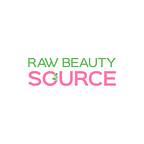Alpha Hydroxy Acids (AHAs): Effect, Benefits, Risks & Tips [Dermatologist Reviewed]
Recently, skincare products containing alpha hydroxy acids (often glycolic acid) have flooded the market, and many people choose those ingredients to improve the condition of their skin.
However, before using such an active cosmetic ingredient, it’s important to understand how exactly it works!
This article will guide you through all the aspects of alpha hydroxy acids (AHAs), and will answer common questions like “How do AHAs impact the skin?”, “Are AHAs suitable for every skin type?” and others.
But first things first!
What are alpha hydroxy acids?
Alpha Hydroxy Acids are non-toxic cosmetic ingredients from natural origin that are used for chemical exfoliation. AHAs in most drugstore skincare products are produced at lower concentrations than what is used in medical grade, in-office chemical peels and therefore cause less peeling. [1]
The effect of those ingredients (depending on concentration and pH level) is to decrease the strength of of bonding between skin cells causing gentle peeling of the dead skin cells from the epidermis (top skin layer) and to balance the pH (acidity) of the skin. [2] As a result, AHAs in cosmetics are associated with positive skin effects and utilized to improve dry and acne-prone skin, in strengthening the skin barrier, and improving the appearance of wrinkles, pigmentation, and other signs of aging.
There are different types of alpha hydroxy acids [3] :
- Glycolic Acid (extracted from sugar cane or synthetically created)
- Lactic Acid (extracted from milk and has additional humectant properties)
- Tartaric Acid (extracted from unripe grapes)
- Citric Acid (extracted from oranges and lemons)
- Malic Acid (extracted from apples and cherries)
You can find either one or a combination of a various acids in different skincare products, including cleansers, shampoos, moisturizers, serums, masks and peeling agents.
The advice from Dr. Cannon (Board-Certified Dermatologist):
Alpha-hydroxy acids can be a very effective part of any skincare regimen. I always recommend chemical exfoliants over physical methods to decrease the risk of superficial trauma to the skin.
As with any addition to your skincare regimen, the key is to start slowly and with lower strengths to assess how your skin responds to the new ingredient. Alpha-hydroxy acids as part of a well-rounded skincare regimen are helpful in treating many common conditions including acne, hyperpigmentation, melasma, and general photoaging. Speak with your board-certified dermatologist and find out how alpha-hydroxy acids can benefit your skin!
How alpha hydroxy acids work?
All of the acids from the AHA category act as exfoliators. They penetrate into the epidermis (top skin layer) and help the dead skin cells to separate increasing cell turnover. Through this process, older skin cells are removed from the new skin cells causing peeling or flaking. Such increased cell turnover helps the skin to thicken by stimulating the healthy development of new skin cells.
Find out more about BHAs in our dedicated article!
Why are AHAs good for skin?
Evidence suggests that using cosmetic products with alpha hydroxy acids correctly can be associated with various skin benefits, including [4] :
- Reducing uneven pigmentation and dark spots
- Fading scars
- Fading signs of aging (wrinkles, fine lines, dull skin)
- Improving skin texture
- Reducing acne and improving acne-prone skin condition
- Strengthening the skin barrier and thickening the epidermis
- Improving water and oil balance of the skin (and reducing transepidermal water loss)
- Helping skin hydration
- Stimulating collagen and elastin synthesis
What are the downsides of AHAs?
Alpha Hydroxy Acids are generally safe ingredients. However, they can have drawbacks.
- When you use such acids, you should always protect your skin from sun exposure (using SPF of at least 30). According to the Skin Cancer Foundation, cosmetic products containing AHAs can make the skin more sensitive to UV light and increase the risk of sunburn even without direct sun exposure. [5]
- The FDA reports various side effects related to cosmetic products with AHAs, including burning, dermatitis, swelling, pigmentation, peeling, irritation, burns, itchiness, and increased risk of sunburn. [6] The source also suggests that such effects are more likely to occur when AHAs are used in high concentrations.
Even though most drugstore products containing AHAs are at low concentrations, it’s a good idea to have a consultation with a board-certified dermatologist on what product to use, how often, and in what concentration. This way, you can avoid the adverse effects of alpha hydroxy acids and optimize their skin benefits.
Are alpha hydroxy acids safe for all skin types?
The answer is “No.” AHAs are generally safe for individuals with mature, oily, acne-prone, dry, or dehydrated skin. However, if your skin is sensitive, reactive, or you are predisposed to eczema and dermatitis, AHAs are more likely to cause irritation than do good.
That being said, people with sensitive skin should always follow the advice of their dermatologist if they want to use products with AHAs.
How to use alpha hydroxy acid?
Generally, when you start using products with AHAs, it’s a good idea to choose a product with lower concentration and use it limited times per week. Seeing how your skin reacts and changes, you can gradually increase the frequency of applications and concentration over time.
However, you should also keep in mind the characteristics of the product you use (whether it’s a serum, moisturizer, or peel), as well as the application guidelines (written on the product label, or given by your dermatologist).
This article is medically reviewed by Sarah Cannon M.D., F.A.A.D.
Originally published at https://rawbeautysource.com on September 9, 2020.
